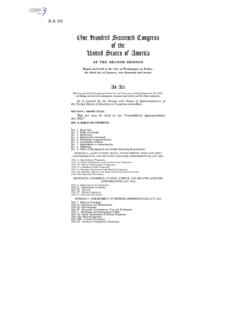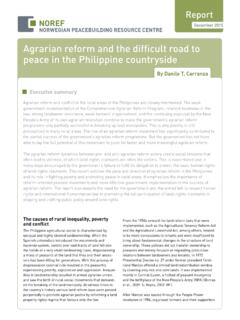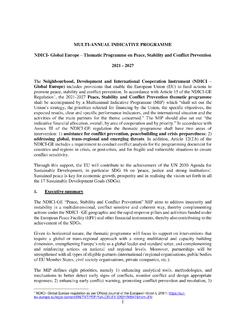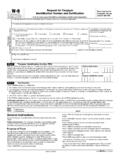Transcription of Corporate Social Responsibility in the Philippines
1 Corporate Social Responsibility in the Philippines Prepared by the Asian Institute of Management RVR Center for Corporate Responsibility Economy paper: Philippines Table of Contents I. PH-1 Early roots of CSR Drivers of CSR: Conscience or accountability II. CSR Activities in the Philippines .. PH-4 The Filipinos perception of CSR Types and forms of assistance Volunteerism CSR benefactors in the Philippines Expansion of Corporate giving programs III.
2 Assessing the CSR PH-11 Corporate giving CSR, despite the economic downturn Measuring the gains from CSR IV. Approaches and Strategies in the Promotion of CSR .. PH-13 Types of CSR collaboration Roles of multi-sectoral groups A. Government Government Tax Incentives CSR in Local Government Units B. CSOs and NGOs C. Private Organizations V. Conclusions and Challenges.
3 PH-19 Appendices ..PH-21 List of References ..PH-30 Economy paper: Philippines I. INTRODUCTION Early roots of CSR Philanthropy has been a tradition in the Philippines , where individual giving and volunteerism are acknowledged to be hidden forces in the Social and economic life of Filipinos. Its practice is particularly prevalent within and across families and kinship groups, and in church-related organizations or Social welfare agencies which undertake such activities as Sunday collections, Social events, fund drives for-a-cause like Piso para sa pasig ,1 the solicitation of donations, special fund campaigns (Christmas fund drives) and disaster relief operations.
4 According to Velasco of the Center for the Study of Philanthropy, the notion of philanthropy and concern for humanity form part of the Asian psyche. In the Philippines , mutual aid is manifested in rural traditional communities. For example, the spirit of bayanihan (a Philippine tradition which entails brotherhood ) is exemplified in the lending of mutual assistance. It is rooted in a deep sense of mutual respect. The bayanihan tradition was cited by Philacor, the Philippines leading manufacturer of refrigerators, washing machines and the like, for its decision to practice Corporate citizenship.
5 The company reported a threefold growth in actual returns to shareholders within a year after implementing CSR activities. The Philacor example supports the hypothesis that economic and ethical motives and benefits are not fundamentally opposed to each other but may actually be reconciled. 2 Drivers of CSR: Conscience or accountability Market forces generally became the major driver of CSR behavior. (See Table 1.) Given the slow growth of the Philippine economy due to economic mismanagement and political instability, corporations saw it fit to be involved in Social development, aware that businesses 1 Piso para sa Pasig is a fund drive for the rehabilitation of the polluted Pasig River, a major river system in Metro Manila.
6 2 Enterprise Round Table, downloaded from (may 2005) could not possibly thrive amidst an environment where the majority were poor. (See Appendix 1.) As then Department of Social Welfare and Development (DSWD) Secretary Dinky Soliman expressed that in today s society, doing business is no longer just the survival of the fittest. Corporations need to give back something to the communities that support their services and programs. CSR is the soul of capitalism. It makes corporations aware of the fact that doing business is not just the bottomline.
7 3 As early as the 1950s, Eugenio Lopez Sr., founder of the Lopez Group of Companies,4 alluded to the CSR concept, We sincerely believe that a greater proportion of the earnings accrued from business should be returned to the people, whether this be in the form of foundations, grants, scholarships, hospitals or any other form of Social welfare benefits. We consider this a sound policy and a good investment which, in the long run, will pay off because it will mean more business and goodwill for the company and would minimize, if not prevent, the Social unrest and disorder which are prevalent nowadays.
8 5 His statement explains why businesses need to do good to do good in business. In the past years, CSR was perceived as a peripheral, an add-on or an almost apologetic activity or tactical response to potential crises. At present, it was adopted as a best practice , absorbed into the core functions and value systems of businesses. (See Table 2.) An increasing emphasis on building partnerships rather than merely transferring resources, which was generally perceived as a form of charity, was noted.
9 In recent years, on the other hand, global market demand and stakeholder expectations for business to take on a larger role in economic and Social development grew, thereby forcing companies to assume as much. 3 Training and Development highlights. Volume 1 Issue 2 4 The Lopez Group of Companies is a family-owned conglomerate with interests in broadcasting, the provision of power, real estate, etc. 5 Asian Forum on Corporate Social Responsibilities 2003. Conference Proceedings.
10 2004 PH-1 Economy paper: Philippines Table 1: Evolution of CSR in the Philippines The Decade of Donations (1960s) During this period, Social inequity was high. Social unrest was exhibited through massive protest demonstrations. Social involvement then was uncomplicated. Companies helped ease the Social problem by giving charitable institutions donations in cash and in kind. Such activities were sporadic, fragmented and uncoordinated. The Decade of Organizations (1970s) A number of business associations/ organizations were established to address the common concerns of the poor.








